The lion is a large carnivorous mammal belonging to the family Felidae, including cats like leopards, jaguars, and tigers. They were known as the king of the jungle because of their majestic appearance and fierce hunting capabilities. Lions have a unique physical appearance, including a large head with a distinctive mane of long hair around the face. They are also recognizable due to their tawny coat, which usually fades to white underneath.
The lion’s impressive size and strength are due mainly to its group dynamic. Lions pride themselves in increasing their chances of survival and success. A pride usually consists of related females, their cubs, and a few resident males. Each member has an important role to play in pride. Females are hunters and work together to bring down large prey. Cubs learn survival skills such as hunting, while males protect their pride from predators and territorial rivals. This collective effort’s strength helps lions thrive in their natural environment.
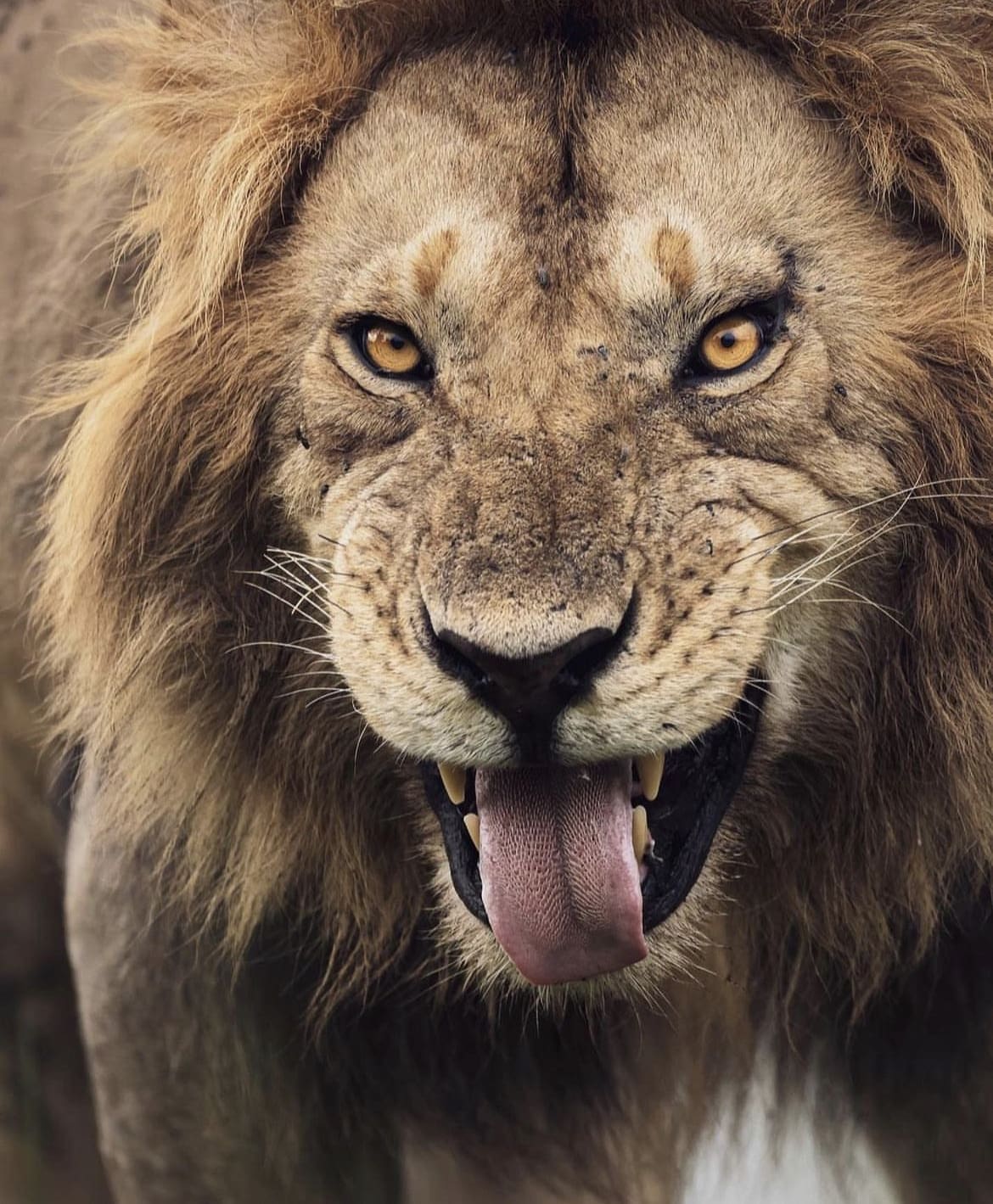
What does a lion typically eat?
Lions are strict carnivores meaning they only consume other animals for food. Depending on their habitat, lions typically hunt and eat antelope, wildebeest, zebra, buffalo, warthogs, monkeys, giraffes, and hippos. Lions will also scavenge for food when they find it, eating anything from eggs to small mammals. The lion’s diet can even be supplemented by eating fruits and grass, but usually only to prevent digestive issues. Lions also consume bones and their prey’s organs to get all the nutrients they need. This helps them to stay healthy and strong enough to protect their pride from predators and rivals.
Do lions eat every day?
Lions do not eat every day. While they can consume large amounts in one sitting, they usually only hunt once or twice a week due to their energy requirements and the scarcity of prey in some areas. During lean times, lions may go several days without eating and then gorge themselves when they can find prey. To conserve energy, lions will also rest between meals and spend up to 20 hours a day sleeping or lounging.
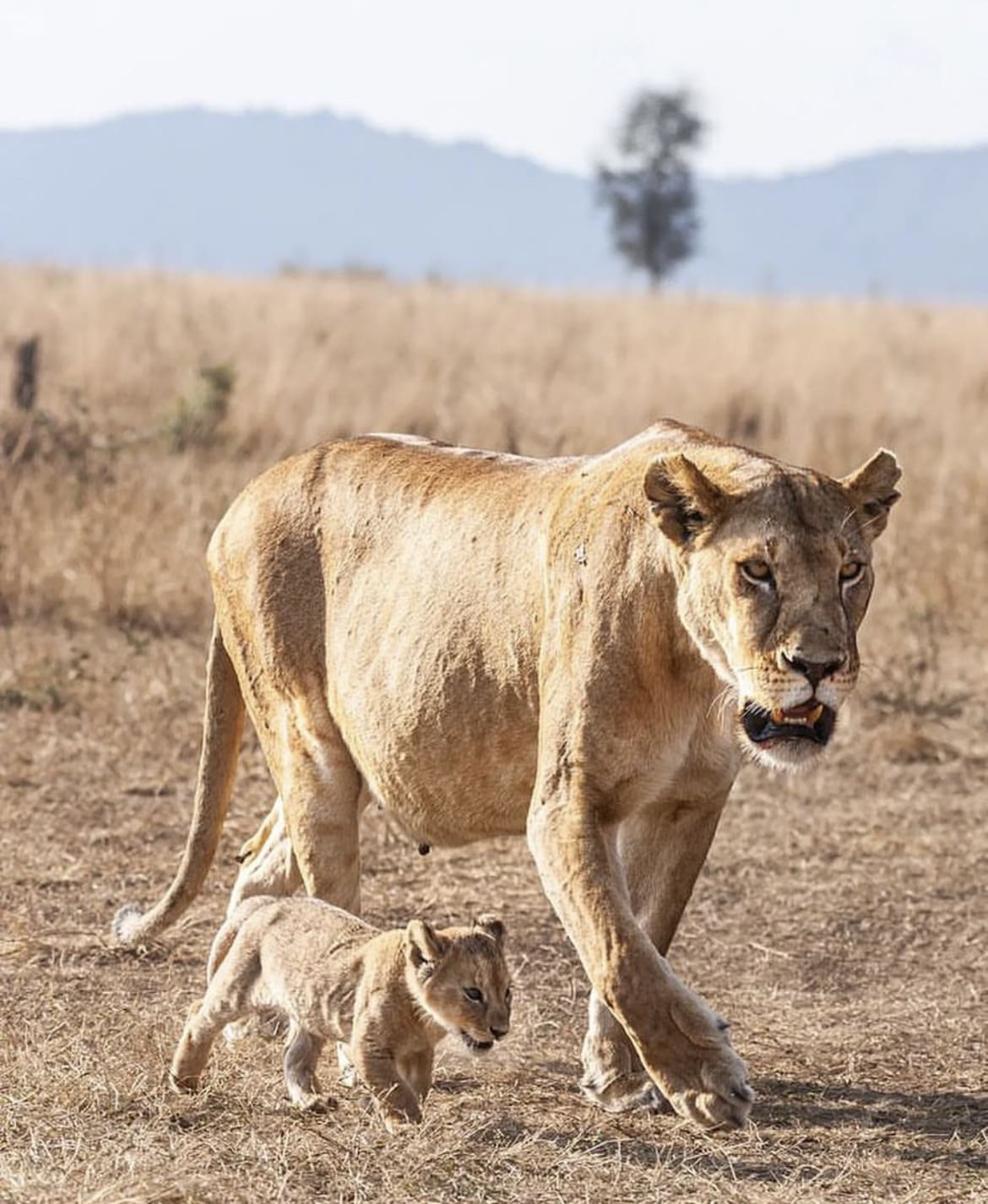
What is the hunting strategy of lions?
Lions hunt in a very strategic way. They will observe potential prey from a distance and decide if it is worth their effort to attempt the kill. They will begin to stalk closer if the target is large enough and there are no other predators around. When they have gotten close enough, the lions will either charge at the prey or ambush it from behind. Lions often hunt in groups, as this increases their chances of success. The females take the lead and usually coordinate the attack by timing the charge and cornering their prey. After the successful kill, lionesses will begin to feed before males join in on the feast.
They use their keen sense of sight and hearing to locate prey and a mighty roar that can be heard from up to five miles away. Although they typically hunt during the night or early morning hours when their prey is most active, lions have been known to hunt during the day in some parts of Africa.
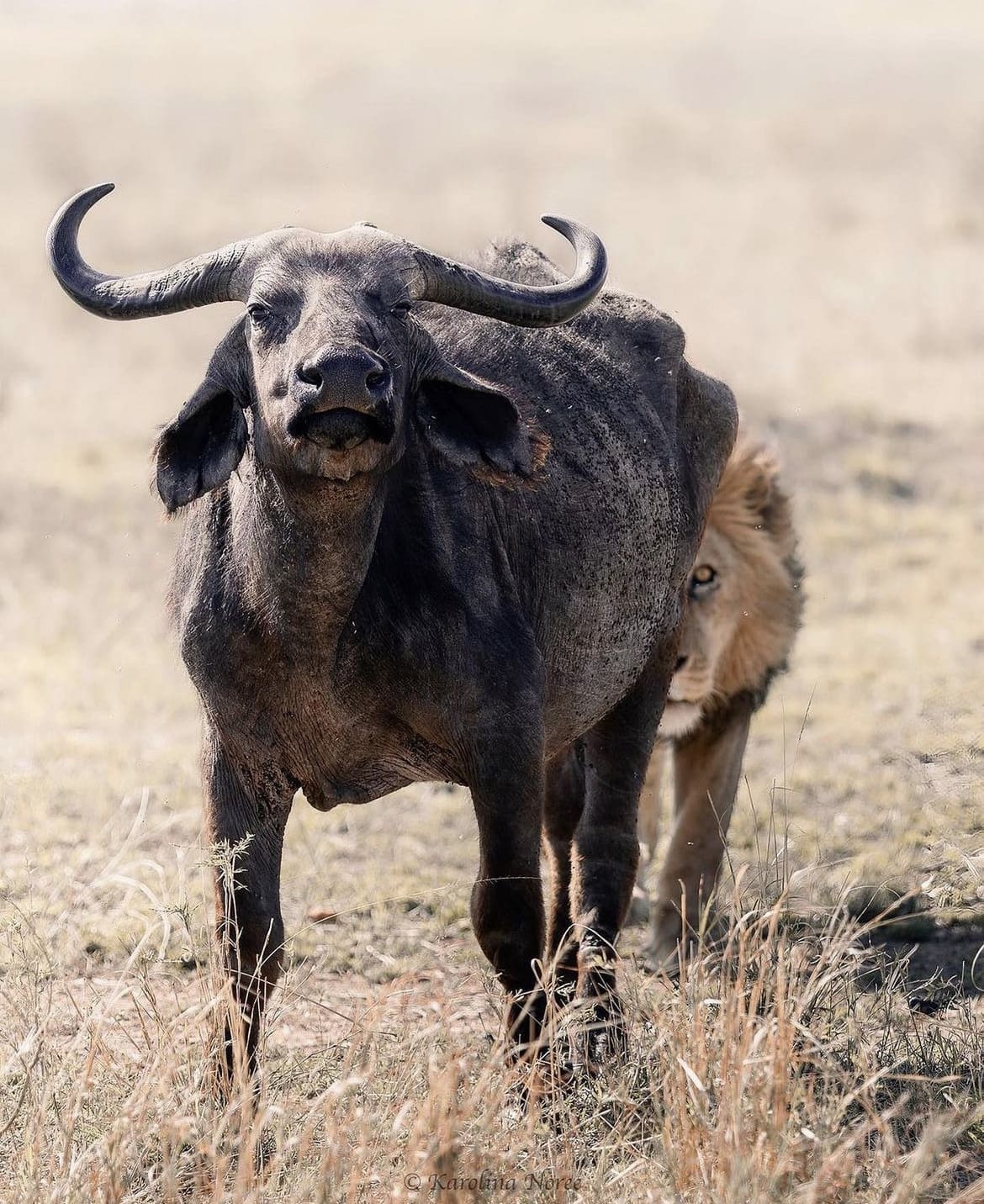
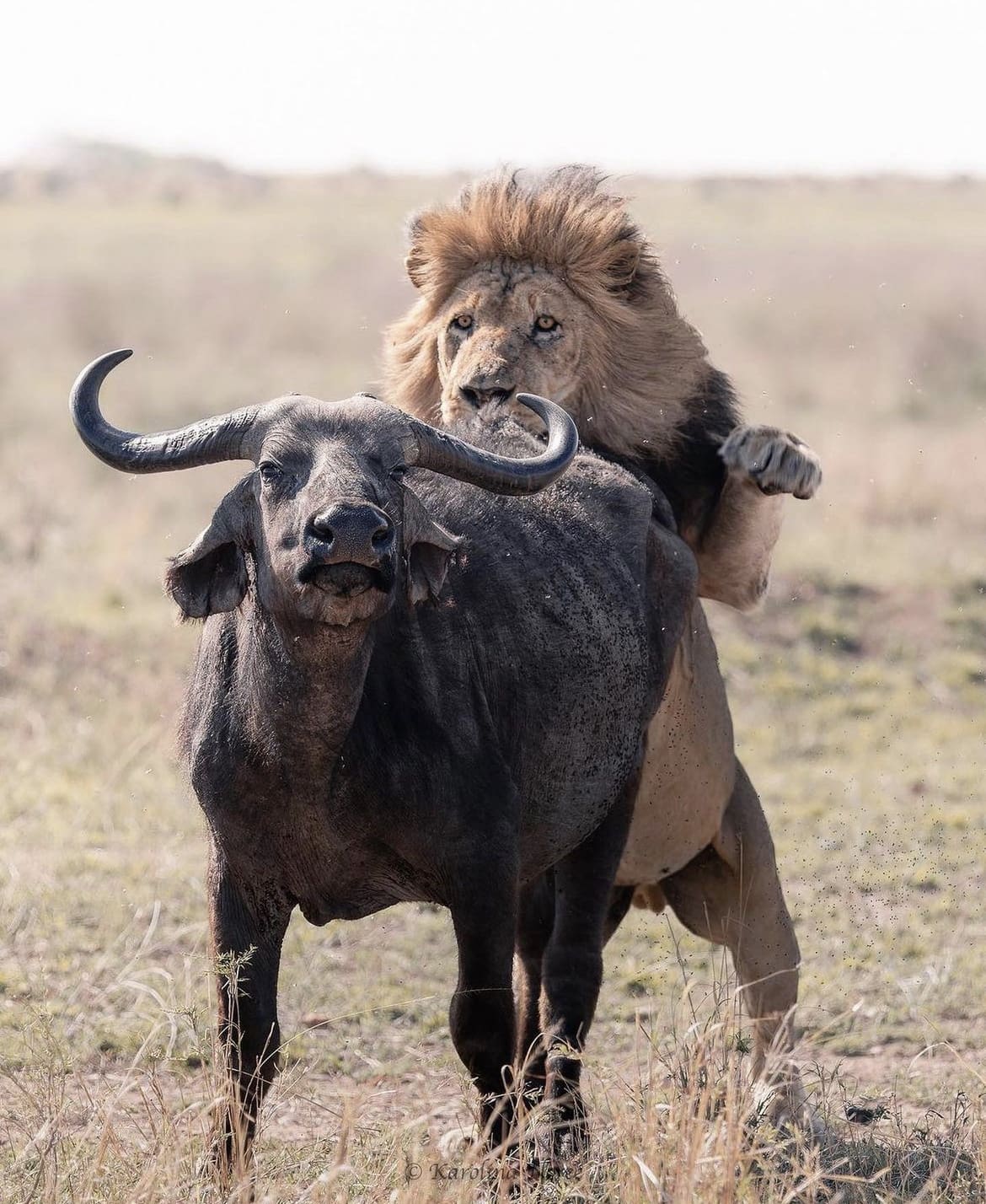
The lion’s hunting style has earned them a reputation as one of the most efficient predators on land. As they continue to face threats from habitat loss and other human impacts, it is important to understand and conserve these magnificent animals to ensure their future survival.
As the largest carnivores in Africa, lions can take down animals that weigh up to three times their weight. Lions typically consume their prey on the spot, sometimes eating it entirely if it is small enough. Otherwise, they will bring pieces of meat to their pride for all members to enjoy. Lions also often swim in herds to catch fish or other aquatic creatures for food. When hunting in hot climates, lions will often hunt during the cooler night-time hours to conserve energy and avoid overheating.
In addition to hunting for food, lions also hunt out of necessity for self-defence. They will often patrol their territory and hunt down any animals or predators that pose a threat, such as hyenas or other big cats. Lions may also hunt to remove sick or injured prey from their habitat to keep the ecosystem healthy.
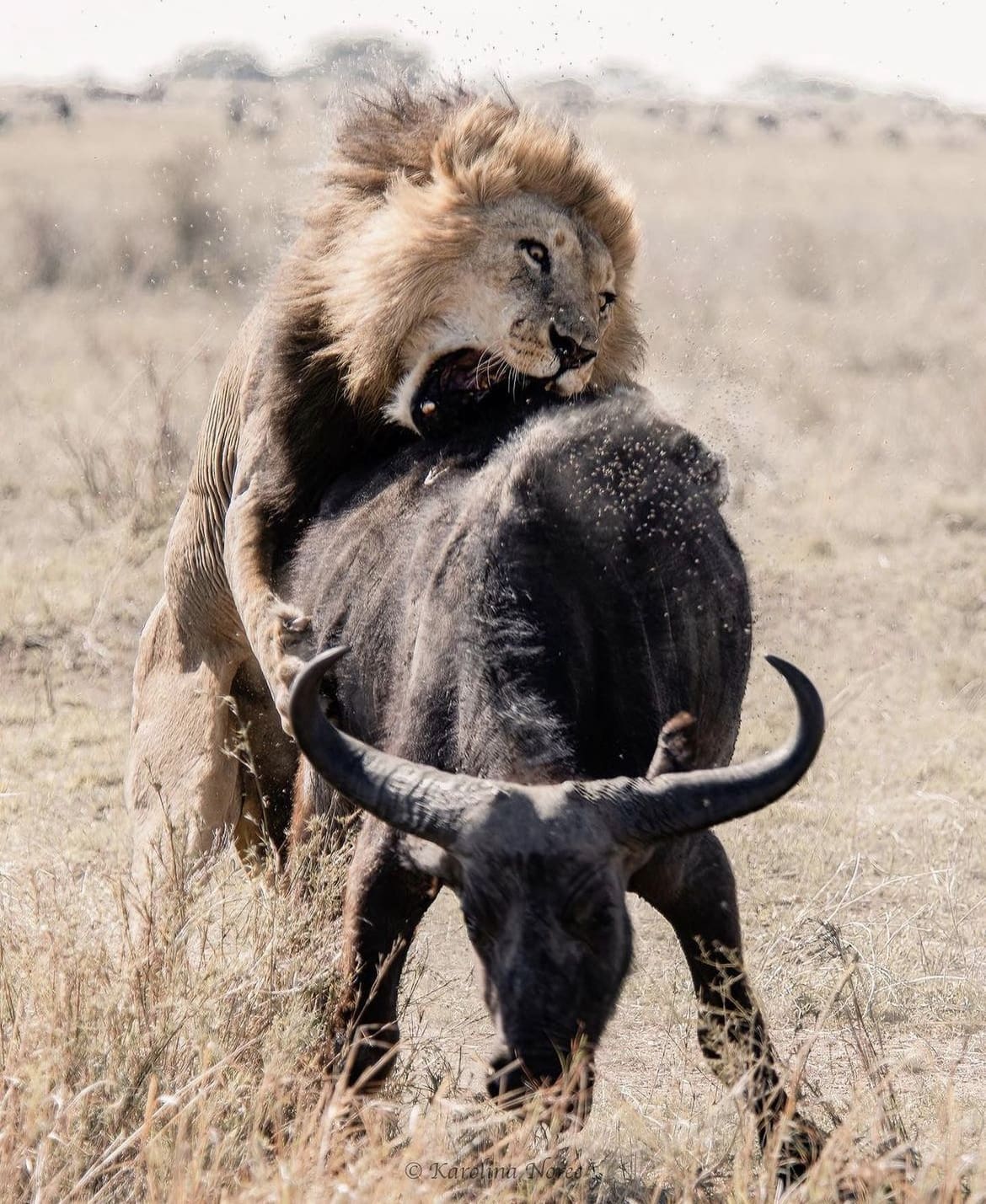
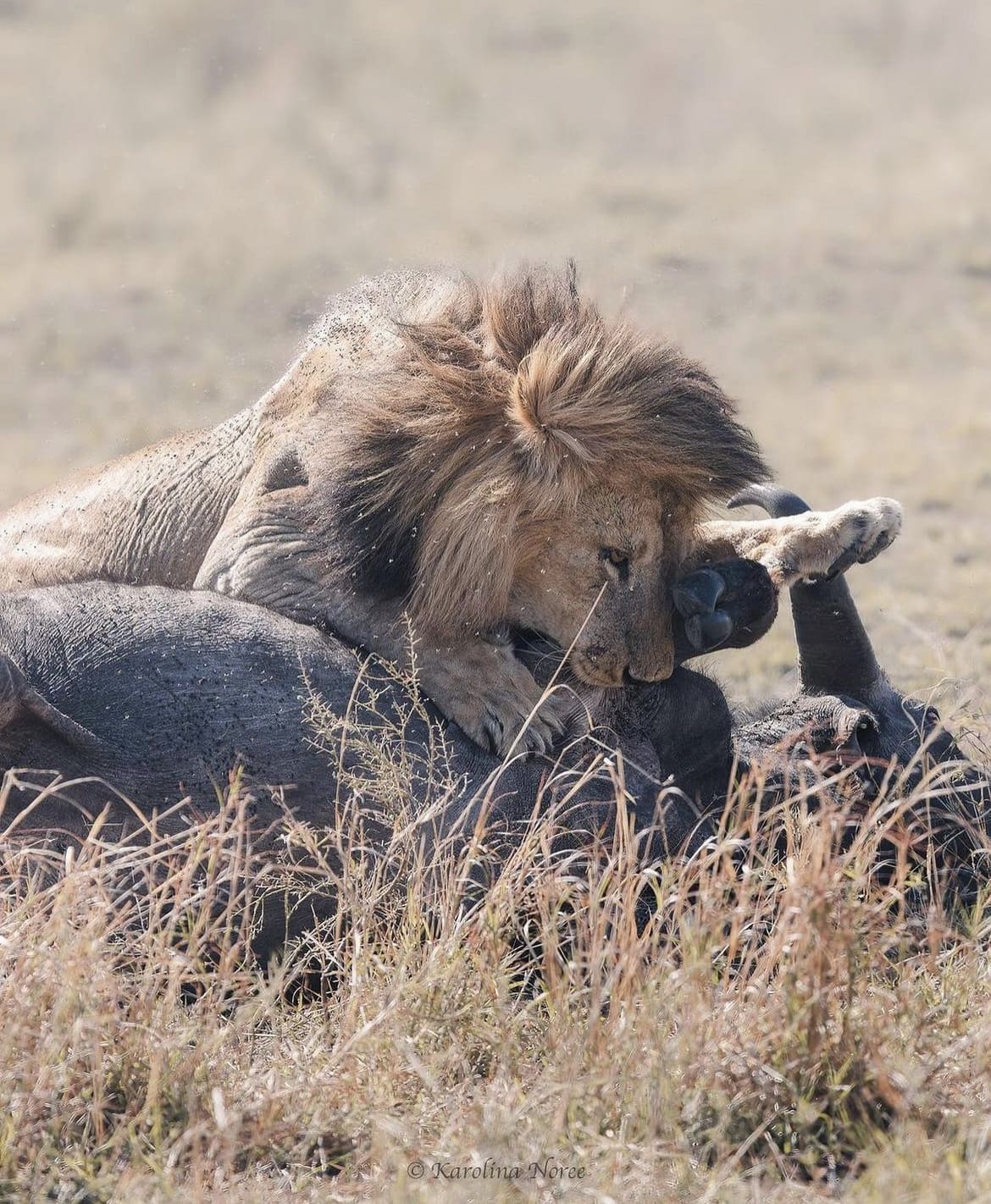
How often does a lion hunt?
Lions hunt anywhere between one and four times a week, depending on their needs. When food is scarce, lions may go for several days without eating before successfully catching their prey. To conserve energy, lions’ social structure allows only some members of the pride to actively hunt while others remain back at the den to guard. This makes it so that the lions can hunt more efficiently and with less effort. Hunting larger animals such as buffaloes or giraffes requires a group effort, which is why lions often band together when attempting to take down large prey.
How do lions eat their food?
Lions usually consume their prey in the same place they have caught it, but will also move their meal to a safer area if necessary. Lions typically eat large chunks of meat and often swallow bones or horns when beginning to eat. After eating, they often lick their fur to clean it off before resting or napping nearby. Lions usually eat the entire prey, from head to tail. For their digestive system to process the large meal, lions will rest for several hours after eating.
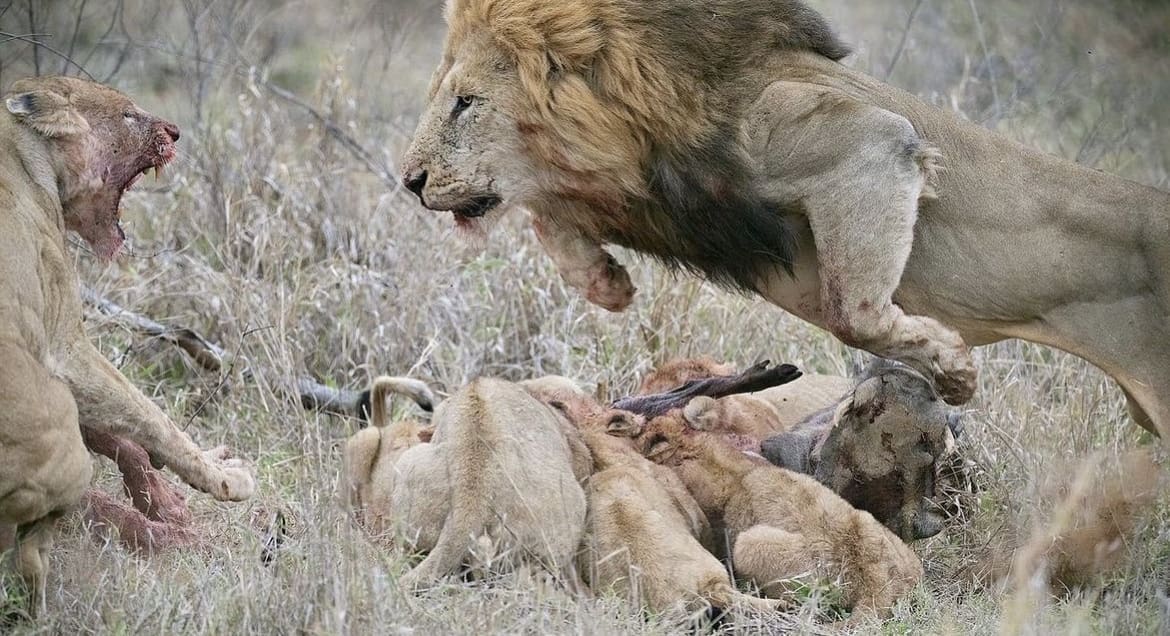
Will lions eat any animals?
Yes, lions typically eat any animals that are within their reach. Depending on the region, this could include antelopes, zebras, wildebeests, buffalos, warthogs, giraffes, baboons, and even rhinos or elephants. Lions will also scavenge for food when they find it and feed on smaller animals like rodents, birds, and reptiles. This diversity of prey helps lions obtain the nutrients they need to stay healthy and strong enough to protect their pride from predators and rivals.
What animals do lions not eat?
Lions are opportunistic predators and will take advantage of any meal if the chance presents itself. Generally the average pride would not look to hunt very large mammals, like elephants or rhinos, but exceptions do occur in parts of Africa. They will also scavenge and or kill dangerous animals such as crocodiles or hippos. Lions sometimes avoid smaller prey, such as birds and rodents as the effort far outweighs the reward.
How much food does a lion require daily?
The amount of food a lion needs to eat depends on the size and age of the animal. Adult male lions usually require up to 8 kg (17 lb) of meat daily, while females need around 5 kg (11 lb). Younger animals will consume less than adults. Lions also hunt more often in larger groups, so they need to eat more food to sustain their energy.
Do Lions have any other behaviours when it comes to food?
Lions also engage in scent-marking behaviour that is related to food. They will rub their faces on the carcass of their prey to mark the area with their scent and alert other lions that food is available. This behaviour helps them conserve energy by avoiding unnecessary competition within their pride and preventing scavengers from stealing food. Lions also have an interesting habit of chewing bones after eating. This helps them obtain calcium and other minerals they may not get from meat. This behaviour also allows them to file down their teeth, which is essential for keeping their mouths healthy.
What do lions cub eat?
Lion cubs are typically weaned between the ages of four and six months. During this time, they will eat what their mother eats, usually small prey such as antelope or gazelle. As the cubs grow older, they will begin to hunt together with pride and learn how to take down larger prey. Lion cubs will also eat fruit and other plant matter to supplement their diet.
Although lion cubs need to be taught how to hunt, they are naturally curious animals who quickly learn the skills necessary to survive in their environment. With the help of their mothers, aunts, older siblings, and even male lions from the pride, cubs can quickly learn the necessary skills to become successful hunters. This collective effort helps lions thrive in their natural environment.
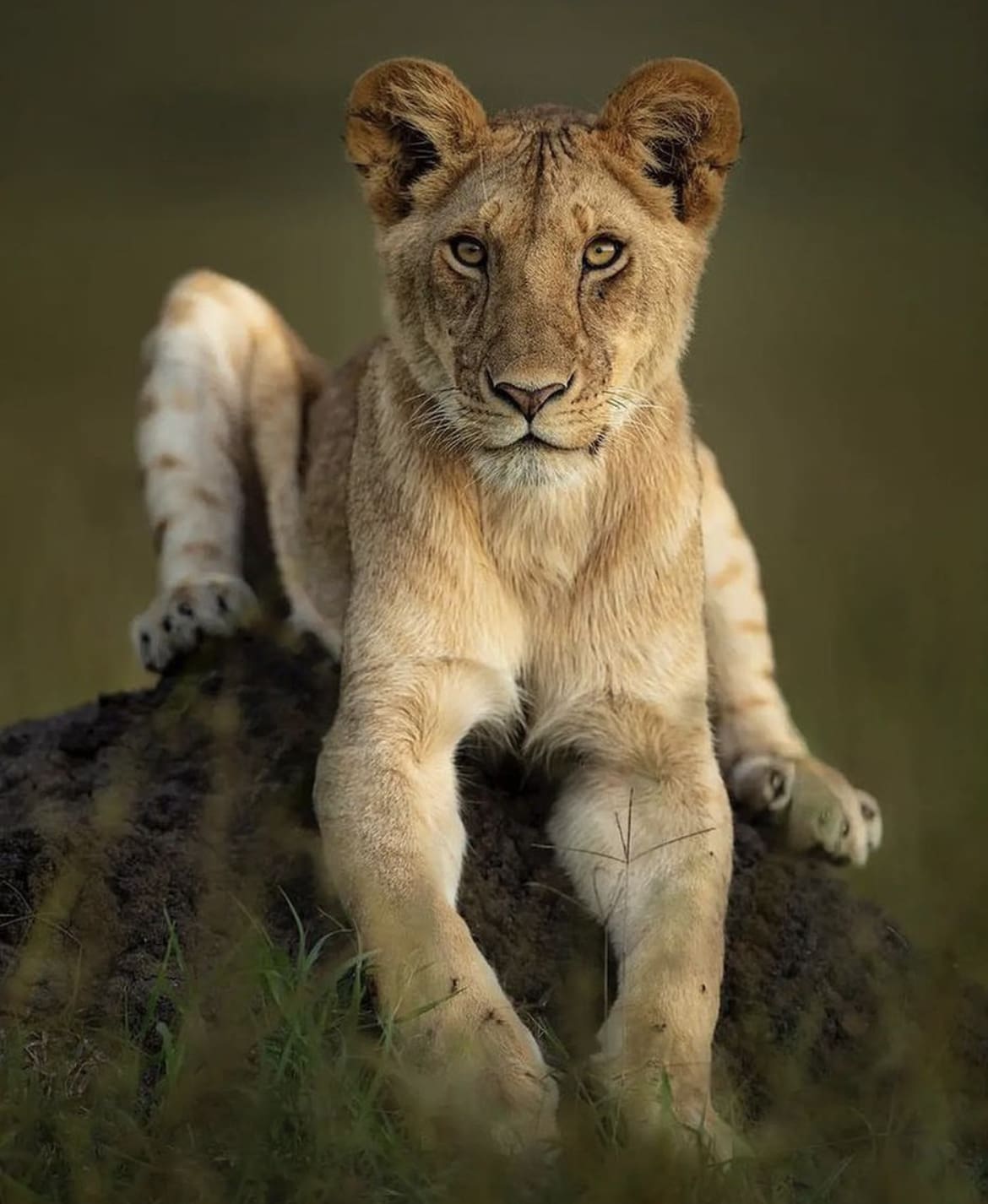
What happens when lions do not find any food?
When lions do not find food, they often resort to scavenging or stealing from other predators. They may also look for easier prey available in the area, such as small animals like rodents, birds, and reptiles. If their search proves unsuccessful, the pride may eventually have to move to a new area to find food. In some cases, lions will even resort to cannibalism if they do not have other options.
Do lions eat their cubs?
In rare cases, lions may kill and even eat their own young. This typically occurs when the mother lion feels that her cubs are weak or sickly, and she kills them to ensure the survival of the rest of the pride. This behaviour is also more likely to happen in an environment where resources are limited, and the lions must compete for food and territory. But overall, lions are highly social animals that typically care for their cubs and work together to raise them.
Most often lion cubs will be killed by rival males, looking to take over a new pride and sire cubs of their own.
Do lions eat humans?
Rarely have lions been known to attack and even eat humans. This usually happens when the animal is injured or sick or a human enters their territory searching for food. However, lions avoid humans and will not attack unless provoked. But it is usually considered self-defense if a lion attacks and eats a human.
If ever a lion ate a human, there’ll be a tendency for the animal to associate humans with food and become a man-eater. Maintaining a respectful distance from lions in their natural habitat is important to prevent this from happening and ensure they have enough food sources available.
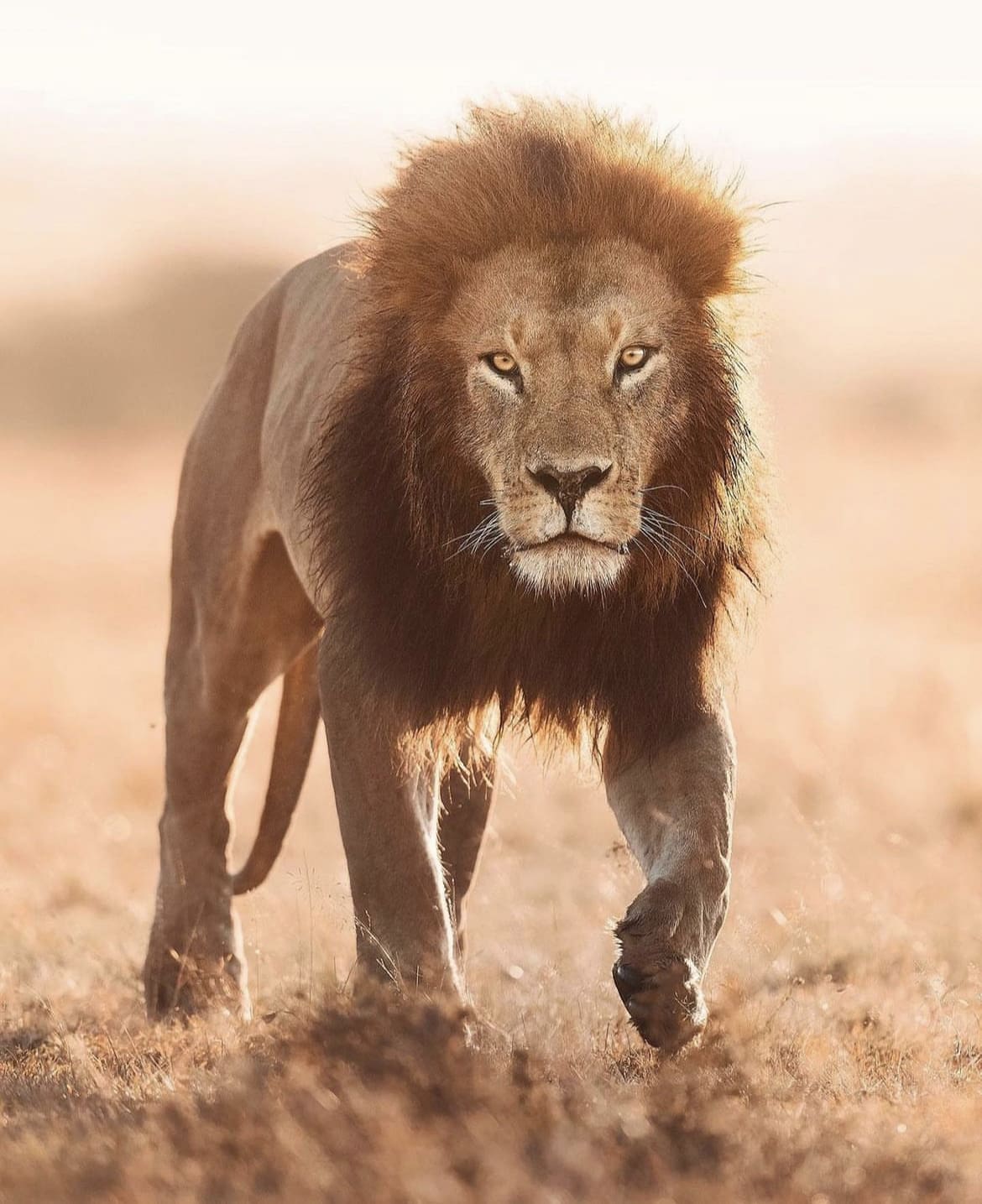
Do lions drink water?
Yes, lions typically drink water every day to stay hydrated and healthy. They can obtain most of their water from food and drink fresh water when available. Lions often hunt close to bodies of water, such as rivers or lakes, to quench their thirst while they hunt or scavenge for food. Lions can also drink saltwater from the ocean when necessary, although this is not their preferred water source.
What does a lion in captivity eat?
Lions in captivity typically eat specially formulated diets that consist of raw meat, bones, vegetables, and fruits. These diets are designed to provide them with all the necessary nutrients to stay healthy. Lions may also receive supplements such as vitamins or minerals to ensure their diet is balanced and nutritious. In a zoo, lions may also be fed small prey such as rabbits or rodents. This helps the zookeepers ensure the animals get enough nutrition and exercise.
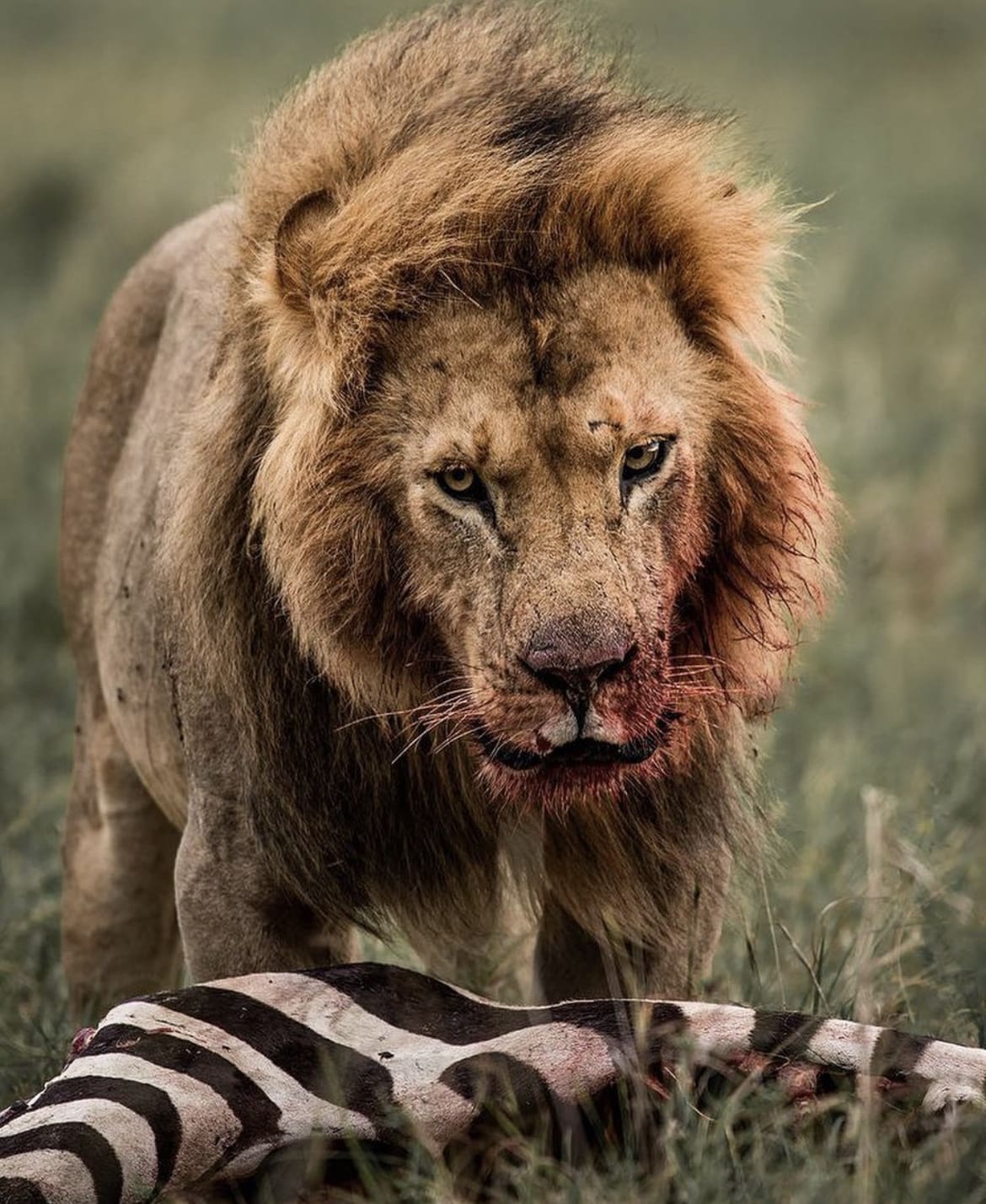
Is a fish a proper meal for a lion in captivity?
No, a fish is not suitable as a meal for captive lions. Lions are carnivores; their diet should consist of raw meat and other animal products. Fish do not provide enough protein or calories to sustain them. Additionally, feeding wild animals with fish could introduce parasites or diseases that can harm the lion’s health. Therefore, it is best to stick with a diet designed explicitly for captive lions.
Conclusion
Overall, lions are powerful animals that need to consume a variety of food sources to stay healthy. They need around 5 kg (11 lb) of food daily and will hunt in larger groups when necessary. Lions also engage in scent-marking behaviour with the carcasses of their prey and chew the bones after they are finished eating. Their dietary habits and other behaviours help them to survive in their natural environment and make them one of the most impressive predators in the animal kingdom.
